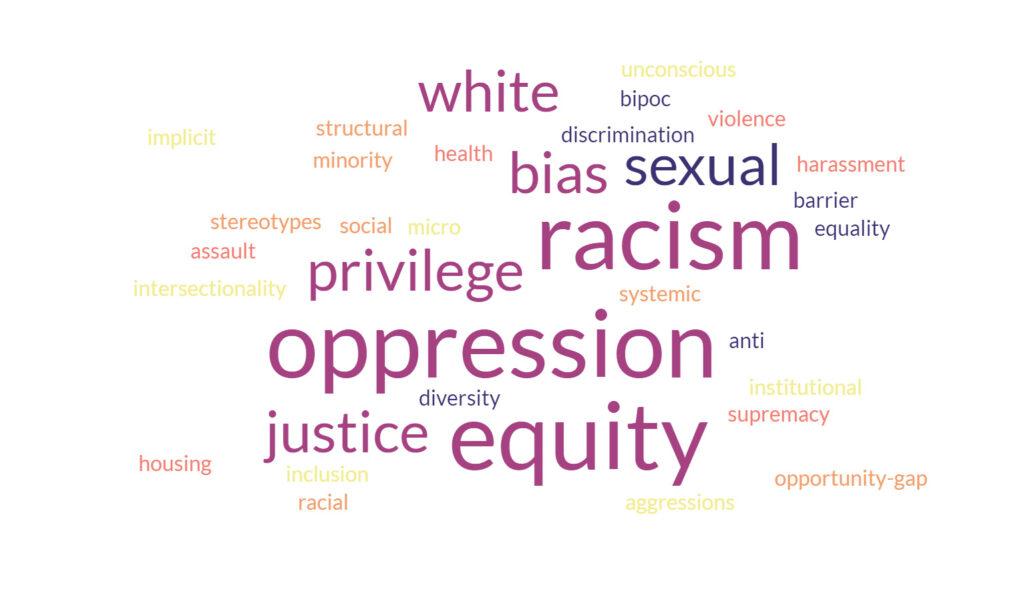- Education on the root cause of sexual violence
- Understanding the role history has played in oppression
- Awareness surrounding privilege and its ability to enable oppression
- Talk, inform, educate, and make changes

What is Social Justice?
Regardless of vulnerabilities, each human deserves to have their inherent rights respected, no matter what; that is the basic definition of social justice. As much as people may claim to have fundamental human rights, there are still inequities that occur based on any of the following:- Sexual orientation
- Race
- Gender
- Disability
- Spirituality
- Ethnicity
- Economic status
- Age
- Citizenship
- Religion
- And more!
“Vulnerability is not winning or losing; it’s having the courage to show up and be seen when we have no control over the outcome. Vulnerability is not weakness; it’s our greatest measure of courage.” -Brene Brown.
Oppression and Sexual Assault
Examples of systems of oppression include sexism, homophobia, ageism, classism, ableism, and, lastly, racism. The following statistics support that some of these systems are at a much higher risk of sexual violence:- 21% of transgender, genderqueer, and nonconforming college students report being sexually assaulted, placing them at a higher risk than college students not falling into these categories.
- American Indians are twice as likely to experience rape/sexual assault as all races
- 29% of non-hispanic black women report being raped at some point in their lifetime
- More than 30% of individuals with intellectual disabilities have encountered sexual abuse
- Almost half of all transgender individuals have experienced sexual assault at some point in their lives
- More than 30% of Hispanic women reported being the victim of sexual assault
Sexual Assault Awareness
Sexual assault, sexual abuse, and sexual violence may be used interchangeably and vary wherever you are. In general, each involves any unwanted sexual contact. Examples of the various types of sexual assault may include:- Rape
- Sexual assault
- Sexual harassment
- Sexual abuse/incest
- Unwanted touching
- Sex trafficking
- Exposing someone’s body to others without consent
- Words of a sexual nature that occur without their consent
- Any type of sexual coercion
The Intersection of Forensic Nursing and Social Justice
Intersectionality is a word used to describe how individuals can simultaneously be the victim of multiple forms of discrimination and oppression. The principles of equity, participation, access, and fundamental human rights are all essential to health promotion and are applied by forensic nurses. Forensic nurses are skilled and educated in social justice theory and thrive on identifying inequities. These nurses are highly trained in demonstrating compassionate nursing care to ALL individuals victimized by trauma and sexual assault. Forensic nurses strive to extend respect and dignity to everyone as they navigate both the healthcare and criminal justice system. The International Association of Forensic Nursing (IAFN) joined the campaign long ago to help bridge the gap between social justice inequities and sexual violence. Some of the ways our organization has chosen to step up include the following:- The IAFN offers free social justice implicit bias training for nurses
- We have identified social justice as a critical pillar in our organizational strategic plan
- We have also incorporated equity, inclusion, and diversity strategies into our Board of Directors, staff application, and interviewing processes.
Do you want to be an Ally?
April is sexual assault awareness month, so we are taking the opportunity to inform, educate, and show up. We challenge you to do the same. The IAFN is asking you to be vulnerable with us and join us in promoting equity and respect in our communities and places of business. How will the future look if we aren’t working together to create real, lasting change on a massive scale? If you are willing to support various groups you don’t usually belong to and challenge the social norms we all know exist, then we ask you to come along as an ally. This process involves becoming more self-aware of privilege’s influence as well as unlearning old and learning new thoughts. Steps involved in becoming an ally include:- Knowing and understanding your privilege
- Educate yourself
- Allow yourself to be held accountable
- Create a safe space for those with marginalized identities
- Inform and educate others with privilege
- Allow yourself to listen to the oppressed
